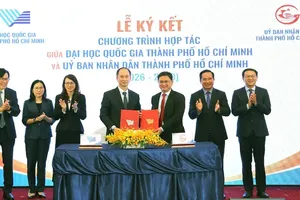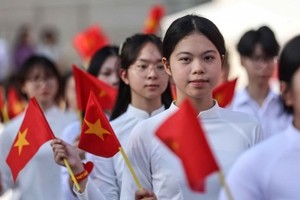
The Committee will preside the kick-off helmet giving meeting to publicize the helmet program for first graders in the academic year 2018-2019.
The program will start after June 15 with the theme “ Giu tron uoc mo” (Acquitting oneself of a promise) contributing to increasing public awareness of child helmet legislation when on motorbikes and electric bikes.
























